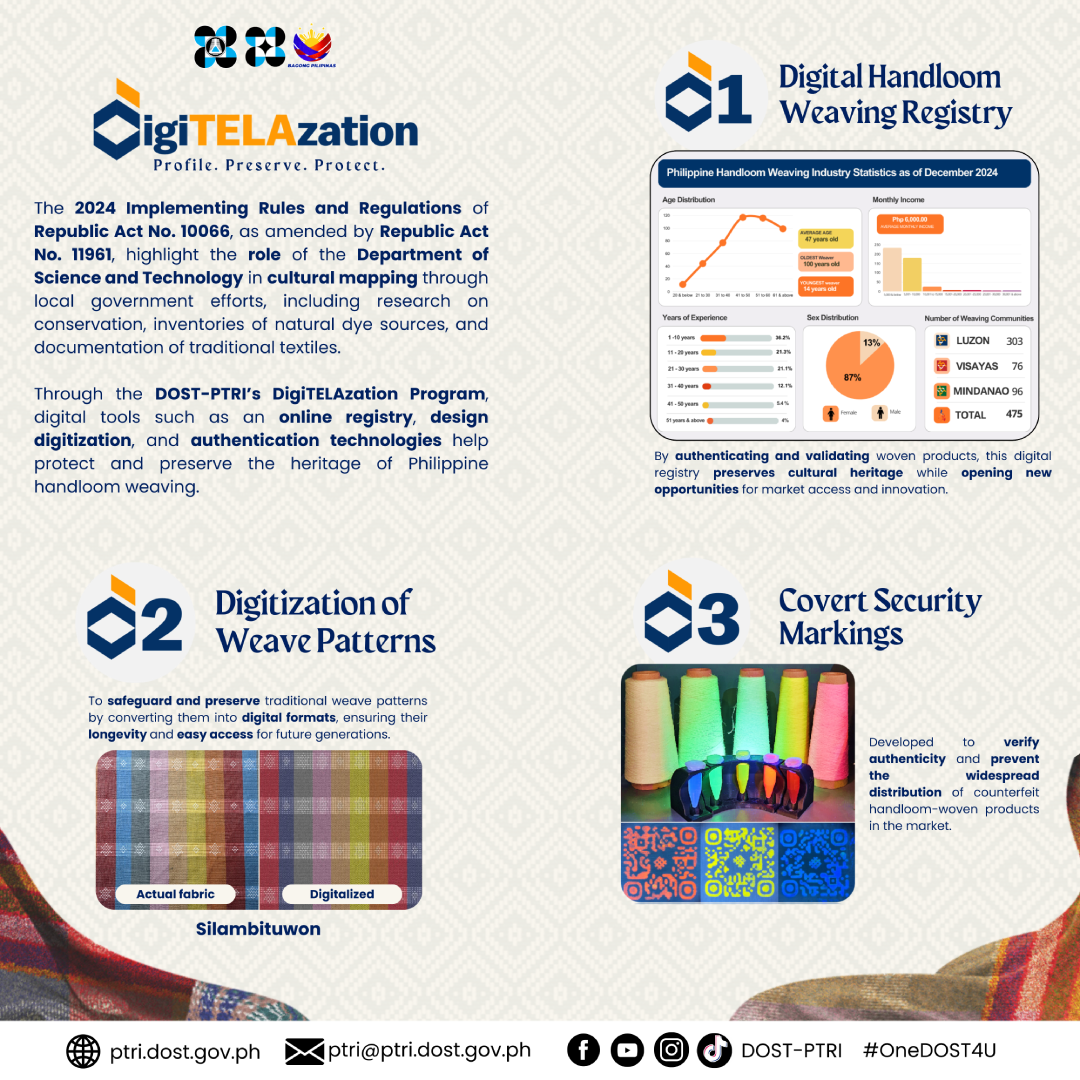The DigiTELAzation Program of DOST-PTRI aligns with and advances the objectives of the Revised Implementing Rules and Regulations of the National Cultural Heritage Act of 2009
The 2024 Implementing Rules and Regulations of Republic Act No. 10066, or the National Cultural Heritage Act of 2009 as amended by Republic Act No. 11961, emphasize the vital role of the Department of Science and Technology (DOST) in cultural mapping. This includes supporting local government units in applying research for the conservation of materials and heritage structures, conducting inventories of natural dye sources, and documenting traditional textiles, apparel materials, designs, techniques, processes, and weaving machinery. The law also highlights the importance of research and development in driving innovation within the Philippine textile industry.

In line with this mandate, the Philippine Textile Research Institute (DOST-PTRI) launched the DigiTELAzation Program, a suite of technological solutions aimed at safeguarding and promoting traditional handloom weaving. Key initiatives include the creation of an online registry and database for weaving communities, the digitization of traditional weave patterns, and the integration of covert authentication technologies. These tools not only document and preserve valuable cultural assets but also provide mechanisms to prevent counterfeiting and misappropriation.
Together, these efforts demonstrate how science and technology can meaningfully contribute to the preservation and advancement of cultural heritage. By combining traditional knowledge with modern innovation, DOST and DOST-PTRI are helping to ensure that the legacy of Philippine textiles continues to thrive—empowering communities, strengthening cultural identity, and fostering inclusive, sustainable development.






